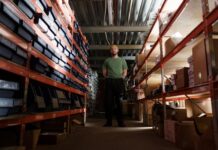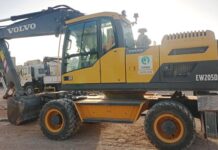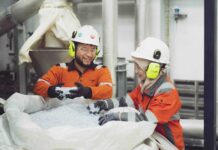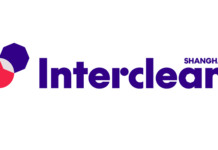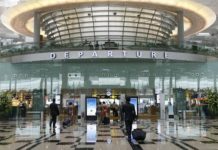Abu Dhabi-based energy company TAQA saw a 15% increase in 2012 revenues as compared to the previous year, driven by by strong performances in the power and gas sectors, it has revealed.
Total revenues for 2012 were AED27.8bn ($7.5bn) compared with AED24.2bn ($6.5bn) in 20111. Cost of sales, excluding construction expenses, were AED16.3bn ($4.4bn) in 2012, an increase of 5%.
Howevern net profits dropped by 13% in the 12 months to December 2012, reflecting a series of one-off items and a challenging price environment in North America.
Profit before tax was AED3.5bn ($952m) in 2012, 14% lower year-on-year than AED 4.1bn ($1.1bn) in 2011, due to lower revenues from oil and gas, principally down to lower North American gas prices and higher finance costs. They increased from AED4.6bn ($1.25bn) in 2011 to AED 5bn ($1.3bn) in 2012, an increase of 10%.
The increase was due to interest on the Malaysian Sukuk issued in March 2012 and the USD bonds issued in end of 2011. The new fixed term debt replaced short term bank loans that carried significantly lower interest rates.
Power and water revenues, excluding supplemental fuel and construction revenues, grew by 9% to AED8.5bn ($2.3bn) from AED 7.4bn ($2bn) in 2011. The increase in revenues was driven by greater available capacity from the Shuweihat 2 plant, which commenced phased operations in July 2011, combined with continued high levels of technical availability across the entire fleet. Construction revenues from the Jorf Lasfar 5 & 6 and Takoradi projects of AED3.6bn ($980m) were offset by construction costs of AED3.5bn ($952m), leaving a profit margin of AED76m (20.6m).
TAQA says its organic expansion plans are also progressing apace, with Jorf Lasfar Units 5 & 6 now 80% complete and on budget. Similarly, the expansion project at Takoradi, Ghana, is now under way with all approvals secured and construction in progress.
It also entered in to two new markets during the year, having signed a Memorandum of Understanding with EÜAŞ, the Turkish national power company, in respect of a major project in Southern Turkey, and investing in a 1,000 MW power plant in Sulaymaniyah in the Kurdistan region of Iraq.
In the UK North Sea, despite some operational challenges, including unplanned shutdowns which impacted performance, TAQA benefited from the buoyant Brent oil price and a number of acquisitions during the year. The most significant being the agreement to acquire from BP a range of assets in the Central North Sea, together with associated subsea infrastructure.
To help address the on-going weak market conditions for natural gas in North America, non-core North American acreage was sold, new acreage was acquired in TAQA’s core production region and uneconomic production shut-in. In the last quarter of 2012, natural gas prices recovered somewhat and have maintained an upward trend since.
Reflecting TAQA’s broader focus on the MENA region, it acquired a majority stake in the Atrush exploration block in the Kurdistan region of Iraq – its first operated oil and gas asset in MENA.
During the course of 2012, TAQA completed several landmark financing transactions, including its maiden Sukuk issuance, and the largest non-sovereign US$-denominated issuance from MENA in 2012.
Carl Sheldon, chief executive officer of TAQA, said: “This was a resilient set of results, supported by the exceptional performance of our power business, where we have not only delivered a strong operational performance, but have also made significant progress with key organic growth projects in Morocco and Ghana. We have also expanded our footprint into two new markets: Turkey and Iraq, and are now firmly established as the regional development partner of choice.
“While we have continued to endure a tough pricing environment in North America, there is reason for some optimism, as prices have recovered from their low point and more positive pricing momentum has been sustained through the last quarter of 2012 and first quarter of 2013. Nonetheless, we have taken decisive action to restructure our North American business, shutting in uneconomic production, selling non-core acreage, and refocusing investment capital. Similarly, in the UK, our pending acquisition of assets from BP will not only give us attractive production, but will also diversify our production footprint into a new region of the North Sea. These steps position us well for the future.”
Stephen Kersley, Chief Financial Officer, said: “One of TAQA’s key achievements during the year was to secure long term financing at very attractive prices – both on a corporate level, as well as at our key projects, such as Jorf Lasfar and Takoradi. We are committed to proactively managing our financing needs to ensure that we have the most appropriate capital structure to underpin our future profitability.”







